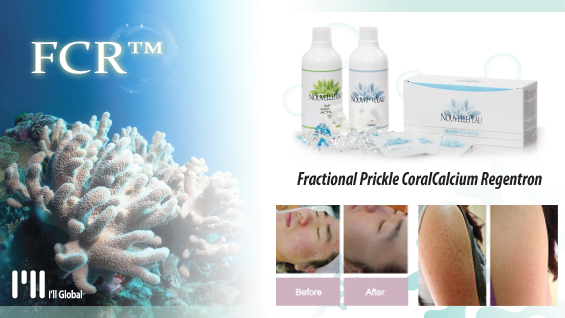Anti-obesity treatment in dermatology and plastic surgery
Anti-obesity treatment in dermatology and plastic surgery mainly consists of device procedures and surgery. Various devices are used in obesity treatment including RF, ultrasound and the recently introduced cryolipolysis. Liposuction is a popular modality used in plastic surgery. Liposuction is said to be the most effective method of immediate fat removal.
However, many specialists agree that device procedures and liposuction are body contouring treatment rather than anti-obesity treatment. Dr. Young-dae Kwon of Gangnam Plastic Surgery Osan shares such views.
“I don’t think liposuction is the ultimate solution to obesity. Liposuction is used as the last resort to correct areas that do not change through exercise or dieting. This is the same for device procedures too.”
Anti-obesity medication may not fall in the area of dermatology or plastic surgery. Dr. Young-dae Kwon explains the reason for not using medication in obesity treatment as following;
“Plastic surgeons are not familiar with pharmacotherapy as their specialty is surgery, however, they also do not use anti-obesity drug for these reasons. First, many anti-obesity drugs are psychotropic and require expertise and experience to use them correctly. Second, medication is not as lucrative for doctors. Consultation and prescription are the only source of profit. Third, patients are becoming more knowledgeable about different drugs and often try to discuss various aspects of mediation. If pharmacotherapy is very effective, plastic surgeons may use it more frequently despite these hurdles, but currently available drugs rarely have excellent efficacy.”
Dr. Won-woo Choi of Wells Dermatology & Medical Spa is a dermatologist who sees many obesity patients. Dr. Won-woo Choi has ventured into pharmacotherapy.
“I use a new ultrasound device called Neoultra to treat obesity. Combining ultrasound with injections can bring about 3cm reduction in the abdominal diameter and 1.5cm reduction in the thigh. The problem is maintaining this reduction. During the first month after treatment, I prescribe anti-obesity drugs such as an appetite suppressant to help patients maintain the treatment outcome. I use phentermine drugs most frequently for appetite curbing. The goal is to maintain the size reduction for at least 3 months with medication.”
The most important aspect of obesity treatment is changing the patient’s habits. Dr. Young-dae Kwon believes that liposuction, device procedures and anti-obesity medication can provide an opportunity for patients to start changing their habits.
“The behavioral change is the last hurdle to weight loss. Medication and liposuction can provide additional push. We need to devise a comprehensive program that continuously supports the patients in their effort to lose weight. I think each private practice should develop their own weight loss programs to educate and treat patients.”
[Advertisement] FCR® (Fractional Prickle CoralCalcium Regentron) – Manufacturer: (www.illglobal.com)]
Safety, efficacy and ways to prevent the yo-yo effect
The keywords for anti-obesity medication are “safety,” “effect,” and “yo-yo prevention.” No treatment options so far have satisfied all three yet. Medication has not been able to satisfy all three either. Medication has varying safety and efficacy profiles depending on the patient and often leads to yo-yo phenomenon where the weight gain occurs immediately after discontinuing medication. Another disadvantage of medication for doctors is that it is low-priced and not as profitable. Due to these limitations, not many doctors use medication to treat obesity. However, there are ways to overcome some of these limitations. Dr. Ki-nam Kim presents ways to increase the safety while reducing yo-yo effect.
“Start the pharmacotherapy from a low dose and gradually increase the dose. Maintain an appropriate level so that the patient maintains his/her effort at behavioral change. Once patients feel that medication alone is sufficient, they will stop trying to change their habits and this triggers yo-yo effect. To prevent yo-yo, continuously monitor whether the dietary control is maintained and prescribe aerobic exercise and muscular exercise to maintain muscle mass. If muscle mass is reduced in body composition analysis, I give them assignments to prevent further muscle loss.”
Dr. Jang-bong Yoon also offers his knowhow on how to improve on the shortcomings of medication.
“Customizing the therapy to each patient helps increase safety. Some drugs can increase the blood pressure or cause insomnia. It is important to consider the patient’s underlying conditions and lifestyle habits rather than focusing only on efficacy. Follow-up is also very important. Medication alone is often not sufficient to bring desired weight loss. Therefore, the doctor has to find ways to maximize the patient’s motivation and will to complete treatment.”
Dr. Jung-ah Koh recommends combining device procedures with medication to enhance efficacy as well as earn higher profits.
“Medication is a systemic treatment but many obesity patients want to correct certain body areas. The flank and medial and lateral thigh, etc. often persist despite systemic weight loss. Patient satisfaction is better when weight is reduced through medication and procedures take care of residual local fat tissues. I provide non-invasive liposonic procedures such as MPL, ultrasound, and high-intensity focused ultrasound (HIFU).”
Dr. Ki-nam Kim agrees.
“There are numerous devices to choose from; low frequency, mid frequency, ultrasound, shock wave, radio frequency, lymph drainage, carboxy therapy, and cooling, etc. Patients nowadays are very well informed about treatments and often request a certain device they want to be treated with. If device procedures are accompanied by medication, the treatment outcome and profitability will both improve.”
Dr. Min-su Park has another suggestion for increasing profit.
“At the first visit, perform a thorough examination (basal metabolism, body composition analysis, and nutrition consultation) to accurately assess the patient’s obesity statistics, lifestyle and dietary habits. As a single treatment is rarely able to bring changes, offer packages of 8 to 12 treatments of various modalities can help increase the profit.”
Besides the low margin, the price of pharmacotherapy continues to fall due to severe competition between obesity specialists. However, efforts to bring better results with medication still continue. Dr. Ki-nam Kim shares his opinion.
“The entire market for obesity treatment includes oriental medicine doctors, dieting aids, groundless dieting methods found online, etc. I think medical practices with systematic treatment is the most effective and safest option for patients trying to lose weight. Medication, injection and procedure offered by a specialist have rich scientific and clinical evidence. I think doctors need to focus on controlling weight rather than temporary reduction. Half of the treatment goal should be initial weight loss and the rest of the effort should focus on maintaining the weight loss long-term. Yo-yo effect, the biggest difficulty in long-term weight loss is known to correlate to muscle mass. Doctors should help their patients continue their aerobic and muscular exercise routines.”
Dr. Jang-bong Yoon emphasizes that patient satisfaction differs depending on the patient’s personal expectation and doctors should focus on increasing patient satisfaction.
“Any controversy over the anti-obesity drug’s efficacy may stem from lack of approval or invalid manufacturing process. In other words, most approved medications do bring effective weight loss. Medication may only be ineffective when the patient has unrealistic expectations or do not put in any personal effort at weight loss. Obesity is a affects a large population worldwide and WHO has emphasized the seriousness of the global obesity epidemic. Many pharmaceutical companies are developing anti-obesity drugs. I hope anti-obesity drugs will be as well-established as anti-cancer drugs in the near future.”
Dr. Min-su Park also expects the future of anti-obesity medication to be bright.
“I think the key to treatment success is reducing tolerance and dependency. Unlike anti-hypertensive drugs or psychiatric medications, response to treatment decreases with time in anti-obesity drugs. We should work toward resolving this issue. I expect more studies will focus on gene therapy in the future as obesity has widely varying genetic etiology.”
According to the 2012 data released by Statistics Korea, the overweight and obesity rate of Korea has risen 8% annually to currently about 31.8%. As the number of people needing obesity treatment grows, more effective treatments are needed. Dermatologists and plastic surgeons can offer pharmacotherapy along with surgery and device procedures to expand their specialty and increase patient satisfaction.
Article/Yunae Shin, Photography/Sang-hee Won, Young-gil Kim




















